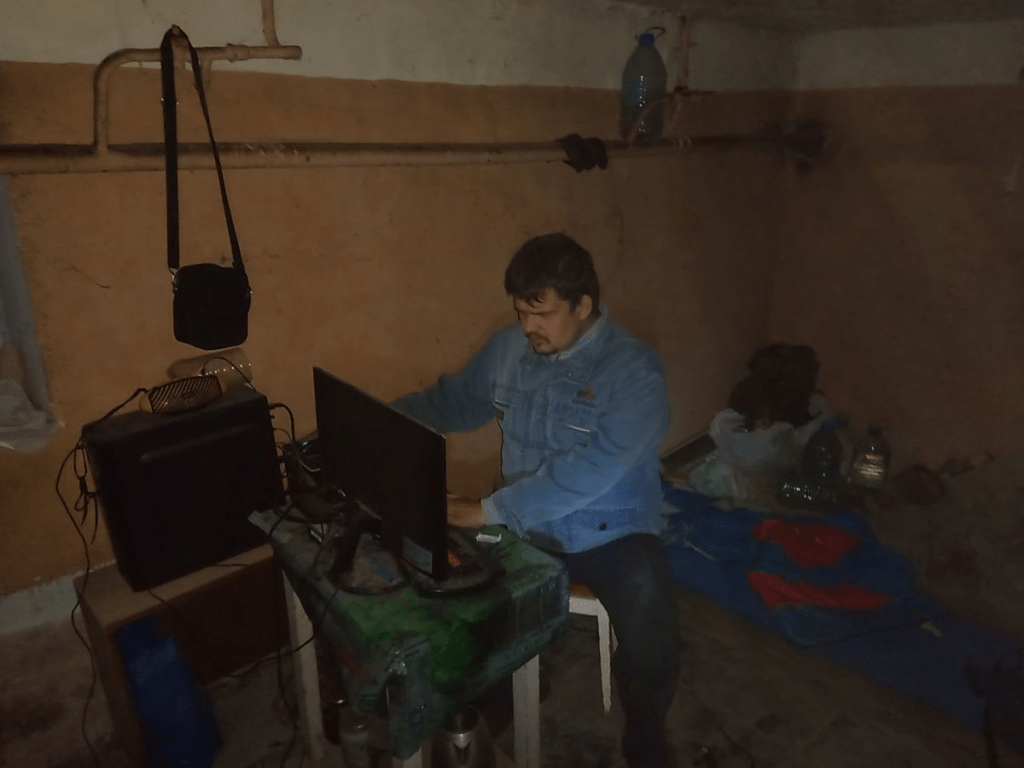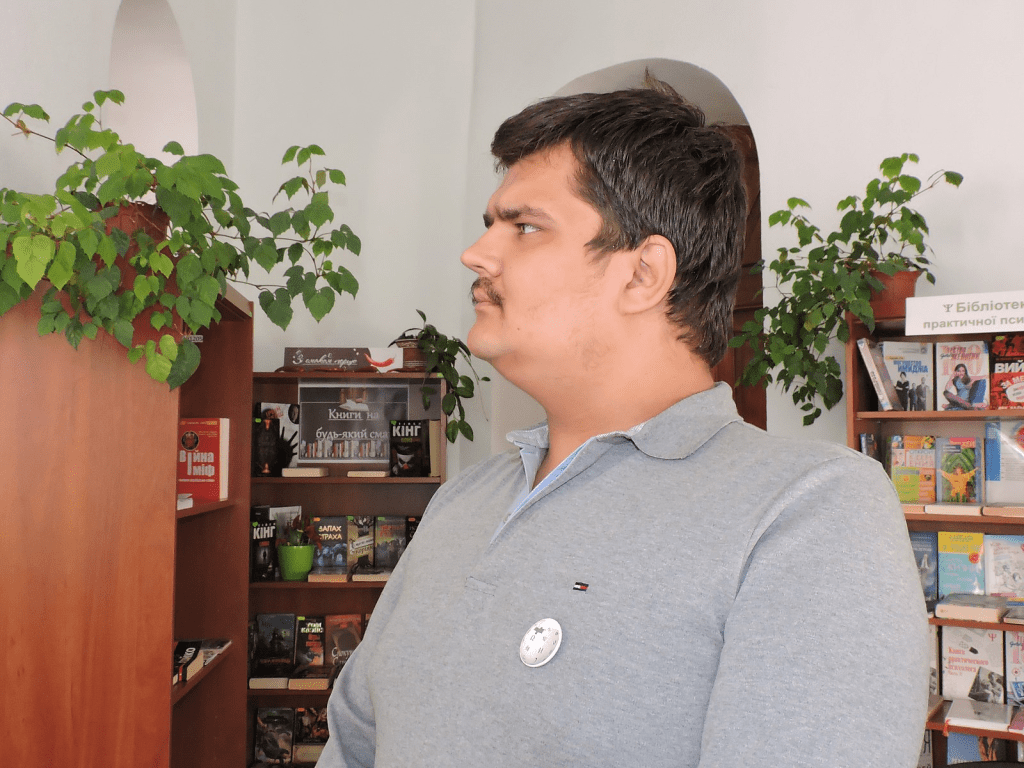Wikimedia Ukraine is collecting and publishing stories of Ukrainian Wikimedia community members affected by Russia’s invasion of Ukraine. See the full collection of stories on Meta.
Viacheslav Mamon is a librarian and Wikipedian from Kharkiv, a major city in eastern Ukraine that has been hit hard by Russia’s war in Ukraine. As the all-out invasion started this year, Viacheslav stayed in the city and continued his work and volunteer editing, even while living in a bomb shelter for several weeks.
Viacheslav first signed up on Wikipedia in 2007 and became an active volunteer editor a few years after. Known as user Venzz, he is an administrator on the Russian-language Wikipedia edition and an active editor on Ukrainian Wikipedia. He is also a member of Wikimedia Ukraine and chairs the NGO’s Audit Committee.

Viacheslav was born in the Kharkiv region and has spent most of his life in the city of Kharkiv. The city has an active wiki community (previously we published a story about its prominent member Serhii Petrov, who stayed in Kharkiv to document Russian aggression as a photographer), but Viacheslav first met fellow Kharkiv Wikipedians in Lviv, 1000 kilometers away, at an award ceremony for an article contest organized by Wikimedia Ukraine in 2017.
Since then, Viacheslav has managed to combine his interest in Wikipedia with his job – today he works as a librarian in the Kharkiv Korolenko State Scientific Library, one of the biggest libraries in the country. Wikipedia is part of Viacheslav’s job – he contributes to Wikipedia directly, leads training sessions, and consults visitors. (Still, most of Viacheslav’s work in the Wikimedia movement is volunteer-based).
As Russia launched a full-scale military invasion, Kharkiv – which is just a few dozen kilometers away from the Russian border – became a prime target. A recent news story of 24 people killed by a Russian missile that hit a dormitory is not an outlier; air raid sirens are wailing days and nights.
However, Viacheslav decided to stay in the city and continue his work in the library and on Wikipedia.
At the beginning of the full-scale invasion, Viacheslav spent a few weeks in a bomb shelter near his home – and continued editing Wikipedia from there. He says the conditions were actually fine; it was too cold, but there was electricity installed in the first days of the war, and he could even find an internet connection.
Just in March, Viacheslav created 19 articles on Ukrainian Wikipedia; such as about a scholar from Kharkiv & a victim of Russia’s war Valerii Moskovets. In early April, Viacheslav received temporary administrator rights on Ukrainian Wikipedia as part of the wartime initiative to fight vandalism more effectively.
On the Russian-language Wikipedia edition, Viacheslav is working to counter Russian state propaganda, including vandalism. He says it was important for the war’s neutral coverage on Russian Wikipedia that its Arbitration Committee and mediators on the topic of Ukraine decided not to consider news media from countries that participate in the war as authoritative – including Russian sources.

In the meanwhile, Viacheslav has been volunteering on the ground in Kharkiv. For example, in the early weeks of the war, he brought food for his elderly neighbors because many shops were closed, so it took a long walk to find a working one. Later Viacheslav helped distribute lunches brought by local volunteers; he also donated blood several times.
Volunteering on the ground is one of the reasons why Viacheslav has decided to stay in Kharkiv despite security risks. Another reason, though, is that he just doesn’t want to leave his city, a place where he spent practically all of his conscious life.
Viachaslav says that his district is not shelled as heavily as some others. Still, he can see destroyed buildings from his balcony – and the shelling has intensified recently.
In August, Viacheslav joined Wikimania to share his experience with the international community. Read more about that session, “GLAM and Crisis”, here.

Can you help us translate this article?
In order for this article to reach as many people as possible we would like your help. Can you translate this article to get the message out?
Start translation